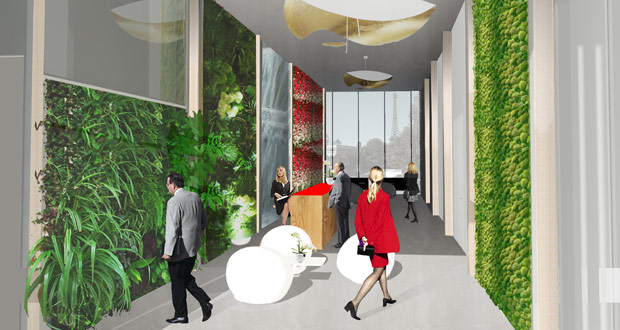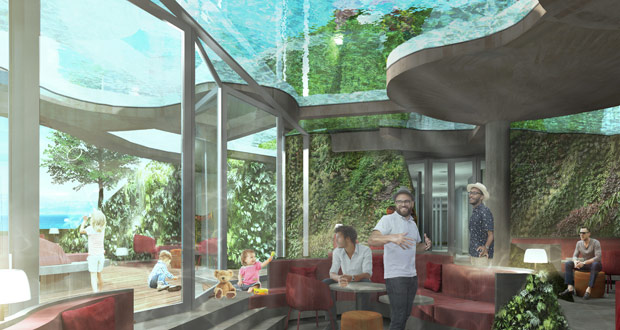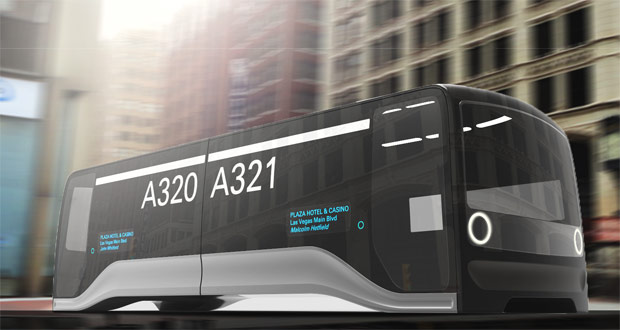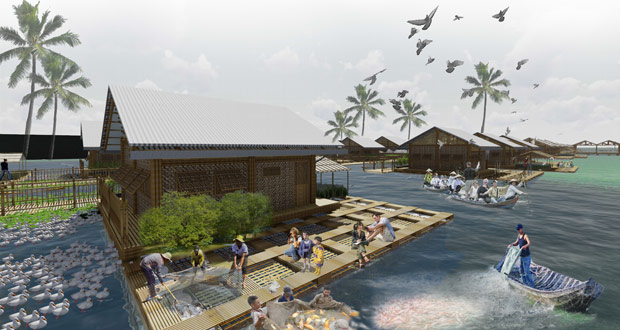NEW YORK — Radical Innovation, a competition and year-round community that challenges designers, hoteliers, and students to pioneer compelling ideas in travel and hospitality, has announced the finalists for its 12th annual edition. The three finalists are: Aquaponic Experience Hotel by Varinot & Varinot Architectes (VVA), Paris; Autonomous Travel Suite by Aprilli Design Studio, Los Angeles; and Le Colline Incantate by Network of Architecture (NOA), Bolzano, Italy.
These three firms will compete in a live pitch presentation at the New Museum in New York City in October. After presentations, a live audience will vote to determine the grand-prize winner of $10,000 and the runner-up prize of $5,000. All of the finalists will have an opportunity to meet industry experts who can help further their concept.
The finalists were selected by a jury of hospitality and design experts: John Hardy, president and CEO of The John Hardy Group; Michael Medzigian, chairman and managing partner, Watermark Capital Partners, LLC; Jena Thornton, LEED AP, managing director, Magnetic ERV; Simon Turner, managing director, Alpha Lodging Partners, LLC; James Woods, head of WeLive, WeWork; Wing T. Chao, founder, Wing T. Chao Global Advisors; and Claude Amar, managing director, The John Hardy Group International.
The Radical Innovation jury selected the finalists out of nearly 50 entries from more than 20 countries based on creativity and design, as well as their potential feasibility and ability to impact the industry.
In addition to the three professional finalists, the jury also selected one student winner from among the student entries. This year’s student winner is Room Extension Solution (RES) by Daniel Cryszczoń and Michał Witalis of Poland’s Cracow University of Technology. Both Daniel and Michał will join the professional finalists on-stage at the New Museum to present their tech-forward concept. They will receive a $1,500 cash prize and the opportunity to pursue a graduate assistantship in the Masters of Architecture program at the University of Nevada Las Vegas, provided by long-time Radical Innovation supporter UNLV. The total two-year value is estimated at more than $50,000.
In addition, the jury selected Dinh Tam from the University of Architecture Ho Chi Minh City in Vietnam to receive an honorable mention for his ecological concept, The Floating Hotel.
Radical Innovation is produced by The John Hardy Group with support from founding sponsor
Global Allies and official partner Sleeper magazine.
Aquaponic Experience Hotel

Submitted by Varinot & Varinot Architectes in Paris, this hotel concept integrates an aquaponic system for a fully self-sufficient experience. Aquaponics is a symbiotic system of aquaculture in which the waste produced by farmed fish supplies nutrients for plants grown hydroponically, which in turn purify the water. Inspired by this concept, Varinot & Varinot Architectes created a hotel that is designed to mirror this closed, vertical system where rainwater is continuously recycled throughout the hotel. Not only does the ecosystem reduce water consumption, but it also produces it in efficient quantities.
The sustainable hotel offers fresh fruits, fish, and vegetables in the restaurant; flowers and herbs in the bedroom; and, seaweed to relax in the spa. The modular concept can be adapted to any city, depending on its individual needs and skyline restrictions.
Autonomous Travel Suite

Submitted Aprilli Design Studio in Los Angeles, the Autonomous Travel Suite integrates transportation and hospitality through a driverless, mobile suite offering door-to-door transportation service in between a traveler’s home and destination. Within a compact hotel room environment, the suite is equipped with basic sleeping, working, and washroom functions, allowing guests to be most efficient and productive while optimizing travel time.
Operated and maintained by the Autonomous Hotel Chain, once scheduled online or via mobile app, a customized unit is delivered to the traveler’s door and taken to a local Autonomous Hotel docking facility at the traveler’s destination, where the unit extends into a larger parent suite. Acting as both a personal rental car and hotel room, The Autonomous Travel Suite provides both a new way of traveling and an extension of the conventional hotel experience, from the minute a traveler steps out of their home.
Le Colline Incantate

Submitted by Network of Architecture (NOA*) in Bolzano, Italy, Le Colline Incantate is a retreat for single parents and their children facing a new family situation. Intended to create a place of security and tranquility within the hills of Northern Italy, the hotel provides its guests with comfortable zones and protected spaces. Designed within its landscape, NOA* decided to cover the entire structure with plants alongside waterways for distinct cross-ventilation that establishes a sustainable, comfortable, and consistent temperature throughout the complex without the need of thermal insulation. The architects worked alongside a psychologist to develop a program with several therapeutic proposals including specific rooms for individual and group sessions, communal group activities, and thoughtful evaluation plans all within an inviting environment.
Room Extension Solution (RES)

Submitted by Daniel Czyszczoń and Michał Witalis of Cracow University of Technology in Poland, RES is a new concept that uses autonomous vehicle technology to act as a hotel room’s extension focused on optimizing travel time, navigation, comfort, safety, and efficiency. After
stepping off of a flight, travelers will be met at arrivals with a quick check-in service for RES. Inside the mobile hotel room, guests will find a full-size bed, ample storage space for luggage with cabinets and small wardrobe, and a fully operational bathroom en route to the hotel structure and docking stations. Until the passenger leaves the hotel, the vehicle is part of the overall room. Combining autonomous transport with hospitality has the power to redefine the way we travel around the world.
Floating Hotel

Submitted by Dinh Tam of Ho Chi Minh City University of Architecture in Vietnam, the Floating Hotel is built to encourage ecotourism. The model integrates local fishing culture and tourism in an eco-hotel. Equipped with fishing cages and efficient space for production, the hotel encourages its guests to experience and participate in farming first-hand. In a shared, sustainable, floating village, tourists and locals are joined to help develop services along the river community.











